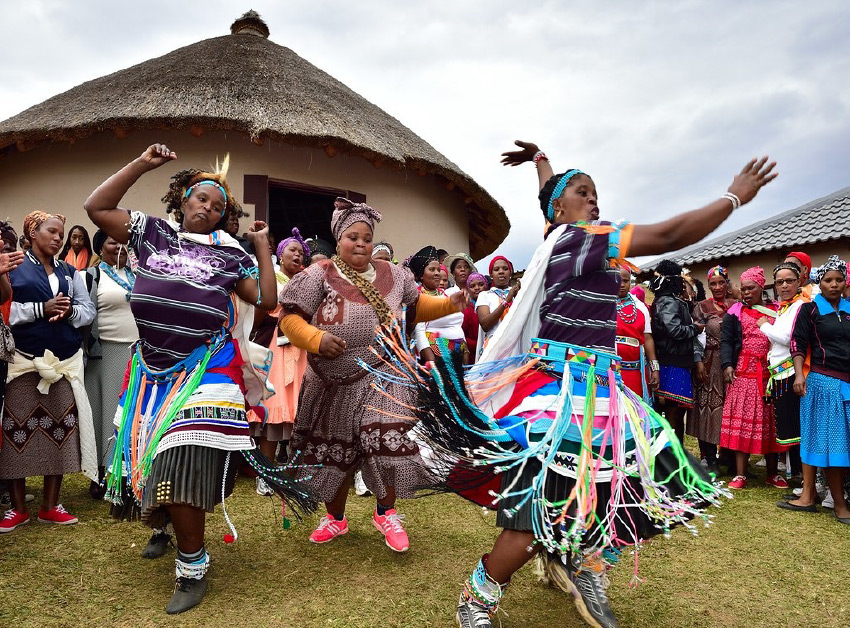![]() Commercial Law
Commercial Law ![]() Criminal Law
Criminal Law ![]() Family Law
Family Law ![]() law@wonga.associates |
law@wonga.associates | ![]() 1 Bridgeways, Bridgeway Precinct, Century City, Cape Town
1 Bridgeways, Bridgeway Precinct, Century City, Cape Town

Unlocking the mystery: The Legal Validity of Customary marriages in South Africa revealed
Background
Since the new dawn of democracy, customary law has become an integral part of the legal system of the new dispensation, its legitimate status is evident from the various provisions of the Constitution of the Republic of South Africa, 1996 (The Constitution). Sections 30 and 31 of the Constitution capture the broad overview on the protection of individuals and collective rights within the community of people practicing those rights. Of particular importance, is section 211(3) that entrenches a primary responsibility for the judiciary, specifically with reference to the resolution of disputes that originate from customary law’s context and not to impose other values and principles that may be foreign to it.
The constitutional recognition of customary law, particularly with reference to customary marriages, has been given effect by the adoption of the Recognition Act. The Act placed no doubts about the originality and distinct nature of customary law as it defines customary marriages in section 1 as ‘the customs and usages traditionally observed among the indigenous African people of South Africa and which form part of the culture of those people’. In South Africa, customary law marriages are prevalent among various ethnic groups, particularly those with strong cultural traditions. These marriages are based on the customs and practices of the respective communities and are recognized as legally binding unions. iLobola is defined as the property in cash or in kind whether known as lobola, bogadi, bohali, xuma, thaka, ikhazi, Magadi emabeka or any other name, which the prospective husband or the head of the family undertakes to give to the family of the prospective wife in consideration of a customary marriage. Given that the marriage was entered according to customary law, section 7(2) of the Recognition Act provides that the legal status of the marriage is that of profit and loss except for the exclusion of such consequences by means of an antenuptial contract which will regulate the matrimonial property regime of the marriage. (Ramuhovhi v President of the Republic of South Africa 2018 (2) BCLR 217 (CC) para 31.
The Discussion: The Requirements
The Recognition of Customary Marriages Act sets out specific requirements that need to be met for a customary marriage to be considered legally valid. Section 3 of the Recognition Act provides that:
- Both parties must be above the age of 18
- Must freely consent to be married to each other in accordance to customary law
- Additionally, the marriage must be entered into in accordance with customary law and customs of the specific community.
This means that the marriage must be conducted according to the traditions, rituals, and practices of the community, and it must be recognized as a valid marriage within that community.
To ensure legal recognition, customary marriages must be registered with the Department of Home Affairs within a certain timeframe. However, section 4(9) of the Act has left the “door open” for the evolution of the living version of the system of customary law as it does not invalidate the recognition of the said marriage due to the failure to register it which means failure to register the marriage does not invalidate the marriage itself, but it may limit the rights and protections afforded to the parties involved. Registration provides legal proof of the marriage and allows for the enforcement of rights and obligations associated with the marriage.
In the event of a dissolution of the marriage, customary law provides for the fair division of assets and the determination of maintenance and custody arrangements for any children of the marriage.
It is important to note that customary law marriages are subject to the same legal principles and protections as civil marriages which is to advance the transformative trajectory of the new dispensation which entails the consideration of the evolving nature of the principle of customary law and not turn a “blind-eye” on establishing prescripts that do not accord with the values of the new democracy. Moorcroft AJ in Thusheni v Minister of Home Affairs [2022] ZAGP JHC 343 held that ‘a court must therefore be careful not to insist on exact compliance with what any party to litigation regards as the appropriate celebrations in specific cases. The key is spousal consent’. Moorcroft AJ endorses the contention herein that consent is the primary principle and fundamental to the validation of the customary marriage and not some lack of compliance with associated practices which are not integral towards the conclusion of the marriage.
While customary law marriages hold legal validity in South Africa, it is crucial for individuals entering into such marriages to understand their rights and obligations. Seeking legal advice and ensuring proper registration can help protect the interests of both parties and ensure the full legal recognition of the marriage.
In conclusion, customary law marriages in South Africa are legally valid and recognized under the Recognition of Customary Marriages Act. These marriages are based on the customs and practices of the respective communities and provide certain rights and protections to the parties involved. However, it is important to meet the specific requirements and register the marriage to fully enforce and protect these rights. Understanding the legal implications of customary law marriages is crucial for individuals entering into such unions.
For more personalized information, be free to book a consultation with us.



